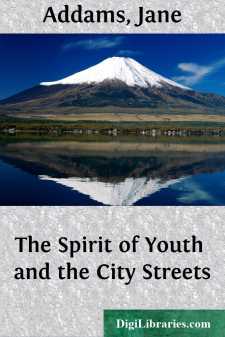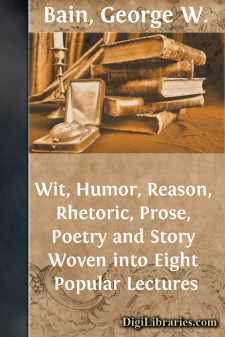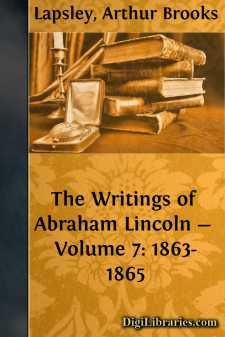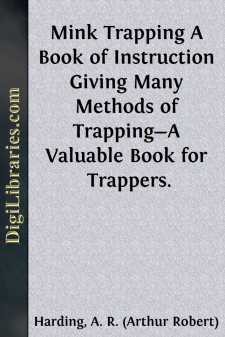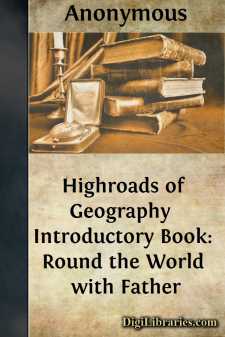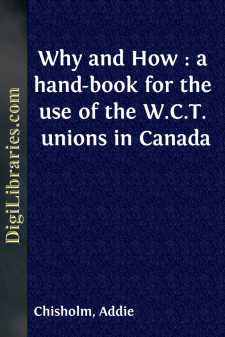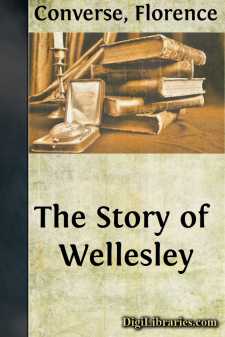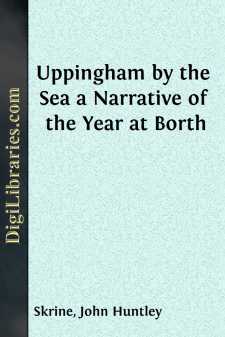Non-Classifiable
- Non-Classifiable 1768
Non-Classifiable Books
Sort by:
by:
Jane Addams
CHAPTER I YOUTH IN THE CITY Nothing is more certain than that each generation longs for a reassurance as to the value and charm of life, and is secretly afraid lest it lose its sense of the youth of the earth. This is doubtless one reason why it so passionately cherishes its poets and artists who have been able to explore for themselves and to reveal to others the perpetual springs of life's...
more...
by:
George W. Bain
I AMONG THE MASSES, OR TRAITS OF CHARACTER. Whatever criticism I choose to make on human character, I hope to soften the criticism with the "milk of human kindness." As rude rough rocks on mountain peaks wear button-hole bouquets so there are intervening traits in the rudest human character, which, if the clouds could only part, would show out in redeeming beauty. To begin with, I believe...
more...
TO GENERAL SCHOFIELD. Private and confidential EXECUTIVE MANSION, WASHINGTON, October 28, 1863.GENERAL JOHN M. SCHOFIELD:There have recently reached the War Department, and thence been laid before me, from Missouri, three communications, all similar in import and identical in object. One of them, addressed to nobody, and without place or date, but having the signature of (apparently) the writer, is a...
more...
CHAPTER I.GENERAL INFORMATION. Mink are found in nearly all parts of America living along creeks, rivers, lakes and ponds. While strictly speaking they are not a water animal, yet their traveling for food and otherwise is mainly near the water, so that the trapper finds this the best place to set his traps. The mink is fond of fish, rabbit, squirrel, birds, mice, etc. In some sections they eat muskrat,...
more...
by:
Anonymous
INTRODUCTORY BOOK. 1. Father kissed us and said, "Good-bye, dears. Be good children, and help mother as much as you can. The year will soon pass away. What a merry time we will have when I come back again!" 2. Father kissed mother, and then stepped into the train. The guard blew his whistle, and the train began to move. We waved good-bye until it was out of sight. 3. Then we all began to...
more...
by:
Addie Chisholm
CHAPTER I. SUFFERING. It has been said "Woman has a capacity for suffering," and during all the years of the past, in all countries and among all nations, woman has been proving this true. Since the dark day when "there stood by the cross of Jesus, his mother," and there came to that mother's heart the agony of bereavement, the human disappointment and pangs, whose torture only the...
more...
The Battle of Stone River. After the battle of Perryville, October 8, 1862, a rather leisurely pursuit of Bragg’s retreating forces was made on the roads to Cumberland Gap, but no engagement was brought on. It soon appeared that Bragg did not intend to again give battle in Kentucky, but would withdraw into Tennessee and join the force under Breckenridge which had been left to watch Nashville during...
more...
CHAPTER I I. As the nineteenth century recedes into history and the essentially romantic quality of its great adventures is confirmed by the "beauty touched with strangeness" which illumines their true perspective, we are discovering, what the adventurers themselves always knew, that the movement for the higher education of women was not the least romantic of those Victorian quests and...
more...
CHAPTER I.—EXILES, OLD AND NEW. “O what have we ta’en?” said the fisher-prince, “What have we ta’en this morning’s tide? Get thee down to the wave, my carl, And row me the net to the meadow’s-side.” In he waded, the fisher-carl, And “Here,” quoth he, “is a wondrous thing! A cradle, prince, and a fair man-child, Goodly to see as the son of a king!” The...
more...
by:
George Hodges
A PURITAN BOYHOOD: WANSTEAD CHURCH AND CHIGWELL SCHOOL The mother of William Penn came from Rotterdam, in Holland. She was the daughter of John Jasper, a merchant of that city. The lively Mr. Pepys, who met her in 1664, when William was twenty years of age, describes her as a "fat, short, old Dutchwoman," and says that she was "mighty homely." He records a tattling neighbor's...
more...


